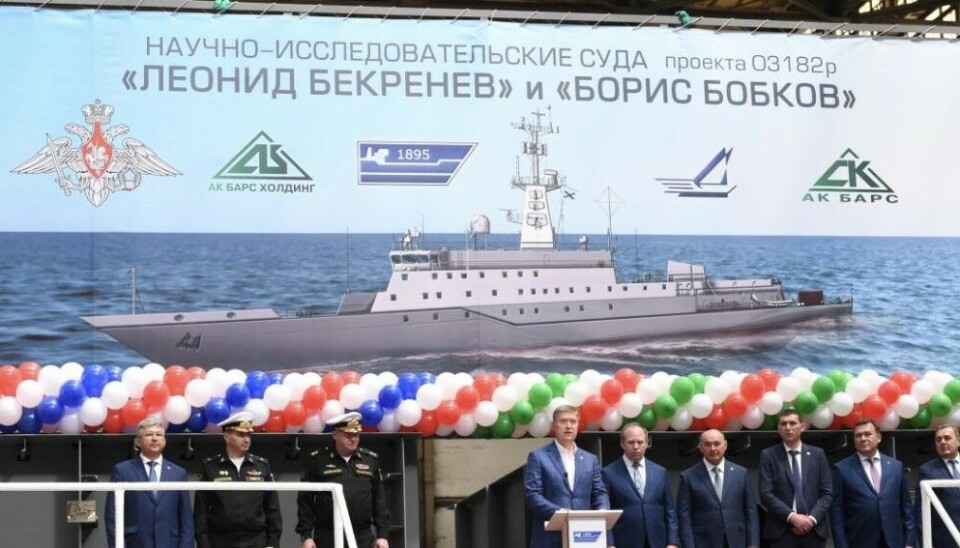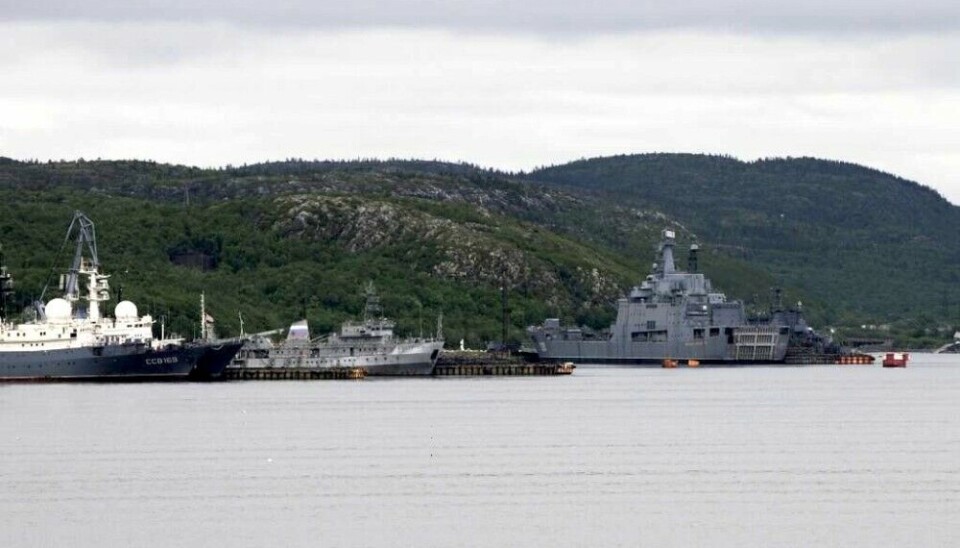
Navy’s Intelligence Directorate gets four more ice-classed spy ships for seafloor operations
Russia boosts its subsea mapping and sabotage capability amid growing concerns in northern Europe over safety for seafloor infrastructure.
Construction of the two first vessels of the class started last summer and will be followed by two more this summer, according to state news agency TASS.
The Northern Fleet will receive the first of the new intelligence vessels of Project 03182R. The “Leonid Bekrenev” is named after the Commander of the Russian Navy’s Intelligence Directorate in the last three years of the Stalin period (1950-1953). The Baltic Fleet is mentioned to get one of the ships. Where the two last will be based is unclear.
Officially, the ships are research vessels, but sailing for the Intelligence Directorate of the Main Staff of the Russian Navy, the intended purpose is military reconnaissance and oceanographic seafloor mapping.
Few technical details are known, but a Russian navy blog-site says each ship is not less than 4,000 tons with a length of about 100 meters. The vessel will have Russian Ice class 3 for navigation in Arctic waters and the winter ice-covered Baltic Sea.
The new class of oceanographic vessels adds to Russia’s growing fleet of intelligence ships capable of carrying underwater equipment for surveillance and mapping of other nations’ seafloor infrastructure.
In recent months, both the Nordic countries, the United Kingdom and the Netherlands said they are closely monitoring Russian vessels sailing near offshore wind-farms, fiberoptic cables, and pipelines bringing natural gas to Europe.

Additional to the Navy’s Intelligence Directorate, the Russian Armed Forces has a dedicated Directorate for Deep Sea Research, better known as GUGI. Its headquarters is in St. Petersburg, while spy submarines and larger surface vessels carrying deep-water mini-submarines are based at Olenya Guba on the Kola Peninsula and in Severodvinsk by the White Sea.














